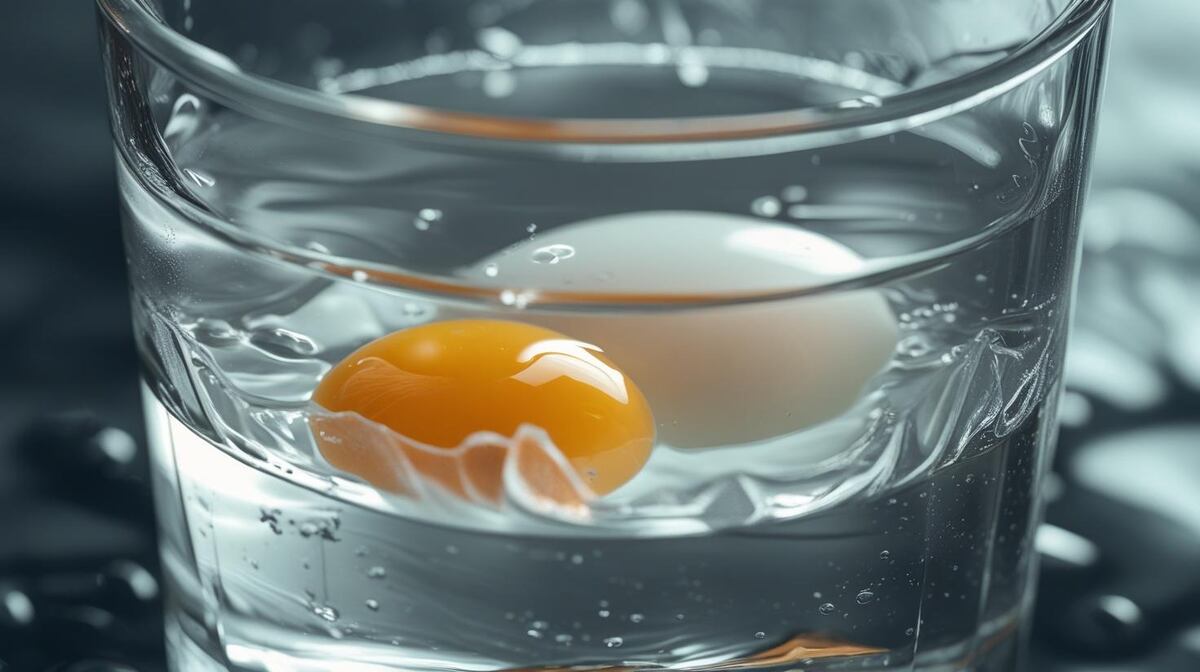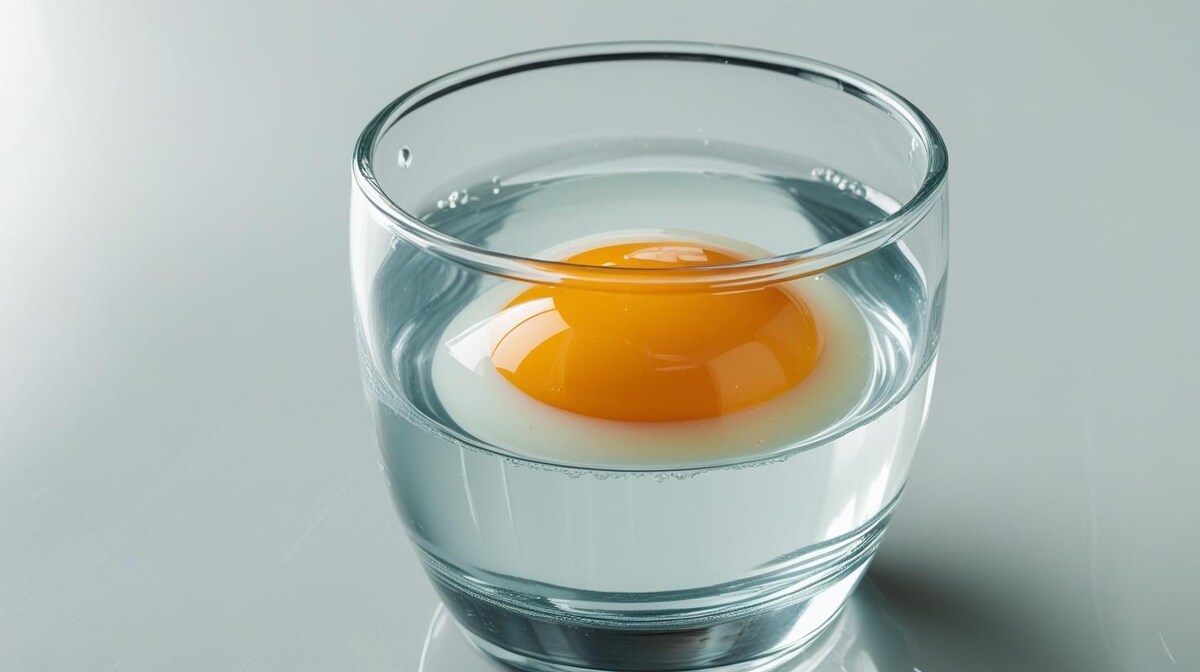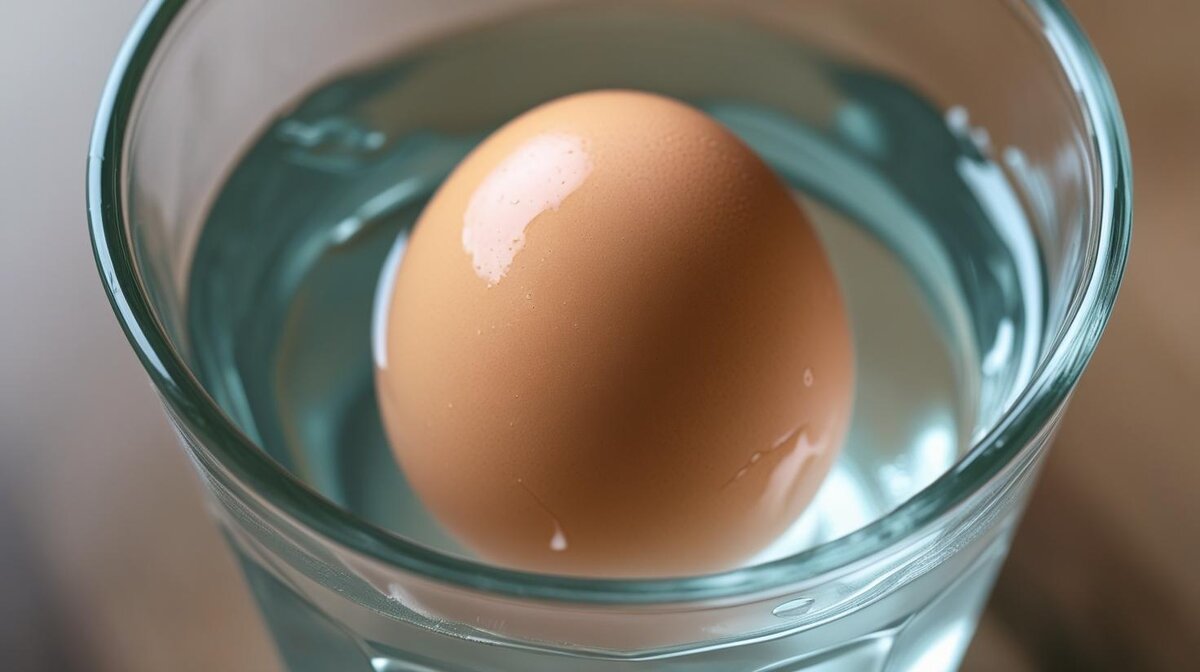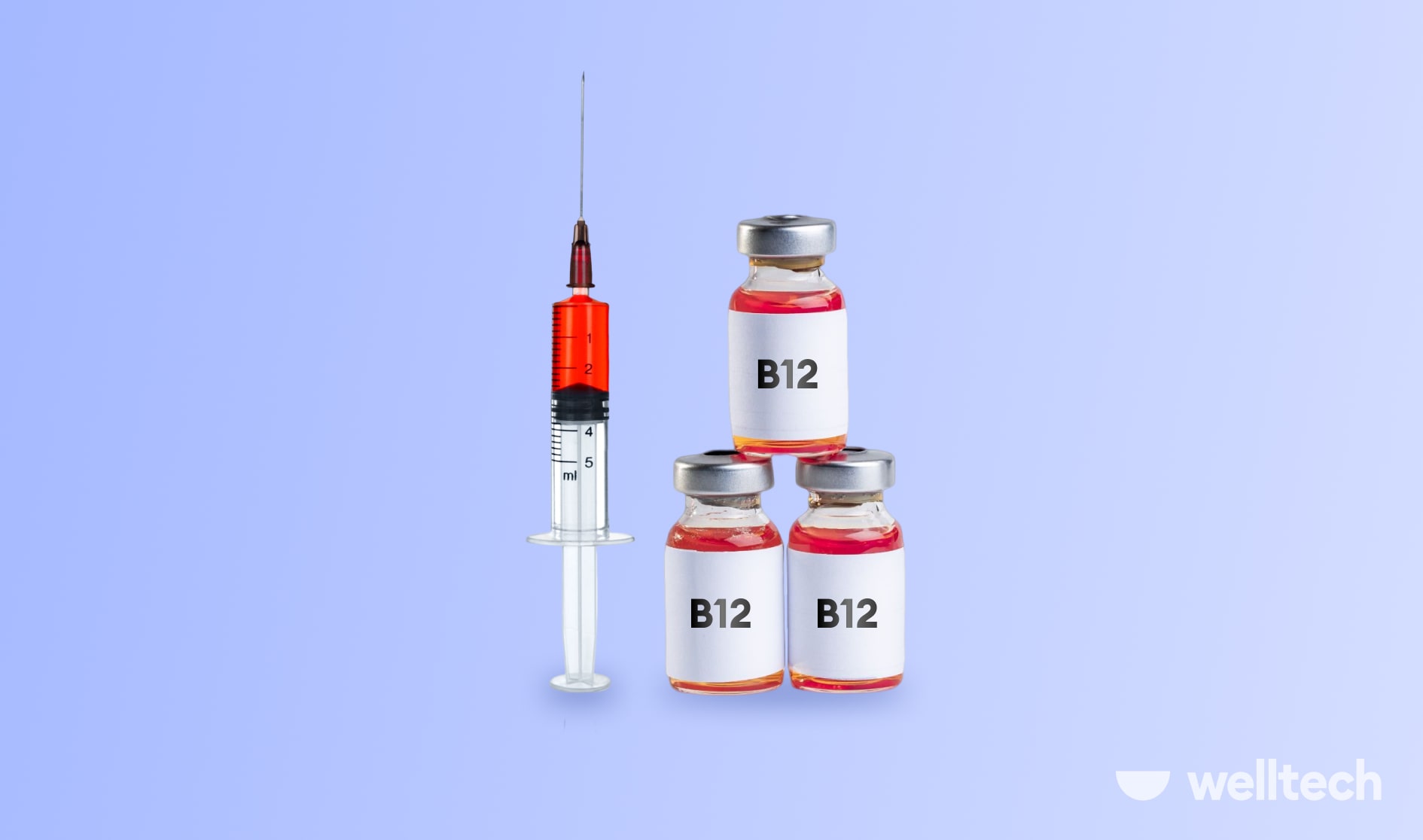Have you ever wondered if the eggs in your fridge are still good to eat? The egg in water test is a quick, easy, and reliable way to find out. This simple kitchen hack can save you from eating spoiled eggs and help you avoid wasting food.
In this article, we will explore everything you need to know about the egg in water test, how to do it, why it works, and some fun facts about eggs.

Table of Contents
What is the Egg in Water Test?
The egg in water test is a method used to check the freshness of eggs by placing them in a bowl or glass of water. Depending on whether the egg sinks, stands, or floats, you can tell if the egg is fresh, a little old, or bad.
This test is popular because it is easy to do at home, requires no special tools, and gives quick results. It’s a handy trick for anyone who buys eggs in bulk or isn’t sure how long their eggs have been stored.
Why Does the Egg in Water Test Work?
Eggs have a small air pocket inside them. When an egg is freshly laid, this air pocket is very small. As the egg ages, moisture and carbon dioxide escape through the shell, and air replaces them, making the air pocket bigger.
- Fresh eggs have a small air pocket, so they sink and lie flat on the bottom of the water.
- Older eggs have a bigger air pocket, so they stand upright or tilt in the water.
- Bad eggs have a large air pocket, so they float to the surface.
The size of the air pocket changes the egg’s density, which affects whether it sinks or floats.
How to Perform the Egg in Water Test: Step-by-Step
Here’s how you can do the egg in water test at home:

- Fill a bowl or glass with cold water. Make sure there is enough water to fully cover the egg.
- Gently place the egg in the water. Be careful not to crack it.
- Observe what the egg does:
- If the egg lies flat on the bottom, it is fresh.
- If the egg stands upright or tilts, it is still safe to eat, but it should be used soon.
- If the egg floats to the top, it is no longer good and should be discarded.
What to Do After the Test
- Fresh eggs (sink flat): Use these eggs for any cooking or baking. They are at their best quality.
- Older eggs (stand up): These eggs are safe but should be used quickly. They might be better for hard-boiling or baking.
- Bad eggs (float): Do not eat these eggs. They can cause food poisoning.
Why You Should Use the Egg in Water Test
- Avoid food waste: Don’t throw away eggs just because you don’t know how old they are.
- Save money: Use eggs before they go bad and avoid buying new ones unnecessarily.
- Stay safe: Eating spoiled eggs can cause stomach aches or worse.
- Easy and fast: No need for fancy gadgets or complicated tests.
Other Ways to Check Egg Freshness
Besides the egg in water test, here are some other ways to check if your eggs are fresh:
- Smell test: Crack the egg open and smell it. A bad egg smells rotten or sulfurous.
- Visual check: Look for cracks, slimy shells, or powdery spots on the shell.
- Shake test: Shake the egg near your ear. If you hear sloshing, the egg might be old.

Fun Facts About Eggs
- Eggs can last about 3 to 5 weeks in the refrigerator.
- The color of the eggshell does not affect freshness or taste.
- Eggs have been used for centuries in cooking and baking.
- Cooks and farmers have used the egg in water test for a long time.
Tips for Storing Eggs
- Keep eggs in their carton to protect them.
- Store eggs in the coldest part of the fridge, not in the door.
- Avoid washing eggs before storing; washing removes the protective coating.
Frequently Asked Questions: Egg in Water Test
1. What is the egg in water test?
The egg in water test is a simple method to check if an egg is fresh or spoiled by placing it in a bowl of water. Depending on whether the egg sinks, stands, or floats, you can tell its freshness.
2. How do I perform the egg in water test?
- Fill a bowl or glass with cold water.
- Gently place the egg in the water.
- Observe:
- Lies flat on the bottom: Fresh egg.
- Stands upright or tilts: Still safe but not as fresh; use soon.
- Floats to the top: Bad egg; discard it.
3. Why do eggs float as they get older?
As eggs age, moisture and air seep into the shell, growing the air pocket inside. Thats makes the egg less dense, causing it to float in water.
4. Can I eat eggs that stand upright but don’t float?
Yes, eggs that stand upright or tilt in water are still safe to eat, but they are not at peak freshness. It’s best to use them soon, especially for baking or hard-boiling.
5. Can I eat eggs that float in water?
No, you should not eat eggs that float in water. Floating indicates the egg is likely spoiled due to a large air pocket and possible bacterial growth. Discard any floating eggs to avoid foodborne illness.
6. Are there other ways to check if an egg is fresh?
Yes, you can also:
- Smell the egg: A bad egg will have a strong, unpleasant odor.
- Check the shell: Look for cracks, sliminess, or powdery spots.
- Shake test: If you hear sloshing, the egg is likely old.
7. How long do eggs usually last in the fridge?
Eggs typically last 3 to 5 weeks in the refrigerator if stored properly.
8. Does the color of the eggshell affect freshness?
No, eggshell color does not affect freshness or taste. Both white and brown eggs can be checked with the egg in water test.
9. Should I wash eggs before storing them?
No, avoid washing eggs before storing, as this removes their protective coating and can make them spoil faster.
10. Is the egg in water test always accurate?
The egg in water test is a reliable guideline, but always use your senses (smell and look) for a final check before eating any egg.
Conclusion:
The Egg in Water Test is Your Kitchen Helper
The egg in water test is a simple, effective way to check if your eggs are fresh or spoiled. It helps you save money, avoid food waste, and stay safe. Next time you’re unsure about an egg, fill a bowl with water and see what it does. This small test can make a big difference in your kitchen!



